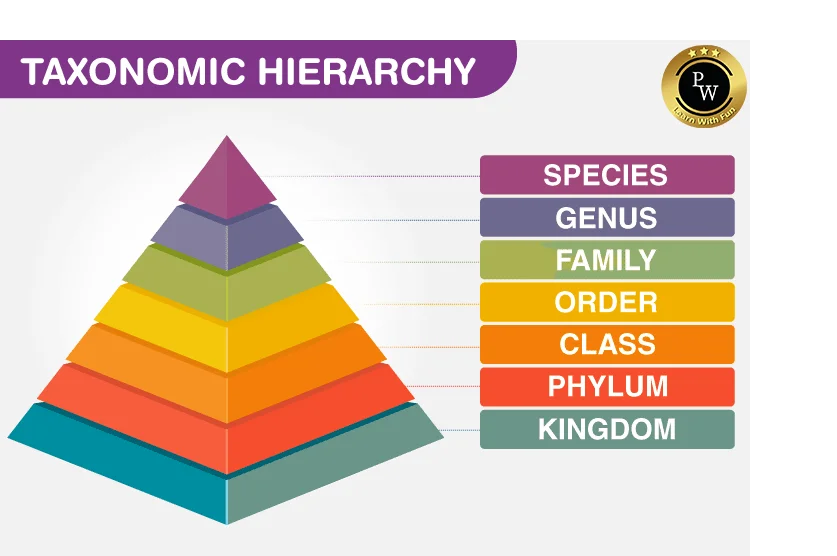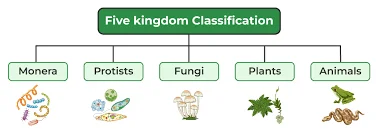![]() May 28, 2024
May 28, 2024
![]() 1557
1557
![]() 0
0
The scientific categorize the immense variety of living organisms boasts a rich history. Early efforts, like Aristotle’s classification based on basic morphological features, paved the way for more sophisticated systems. Modern taxonomy employs a hierarchical structure with seven ranks, from the all-encompassing kingdom to the highly specific species. This framework serves as a critical tool for organizing life and elucidating the intricate relationships between organisms.
|
Taxonomy is the branch of science concerned with classification, especially of organisms. |
Taxonomic Category
There are seven main taxonomic ranks: kingdom, phylum or division, class, order, family, genus,
and species.

R.H. Whittaker proposed a Five Kingdom Classification in 1969. The kingdoms classified by him were named Monera, Protista, Fungi, Plantae and Animalia.

Algae
|
|
| Must Read | |
| Current Affairs | Editorial Analysis |
| Upsc Notes | Upsc Blogs |
| NCERT Notes | Free Main Answer Writing |
The Five Kingdom Classification, proposed by R.H. Whittaker, categorizes life into distinct groups based on cellular complexity, nutritional mode, and locomotion. These kingdoms include Monera (bacteria), Protista (single-celled eukaryotes), Fungi, Plantae, and Animalia. While this system provides a valuable foundation for understanding life’s diversity, ongoing research and discoveries using advanced techniques may necessitate further refinements in our approach to organism classification.
<div class="new-fform">
</div>
Latest Comments